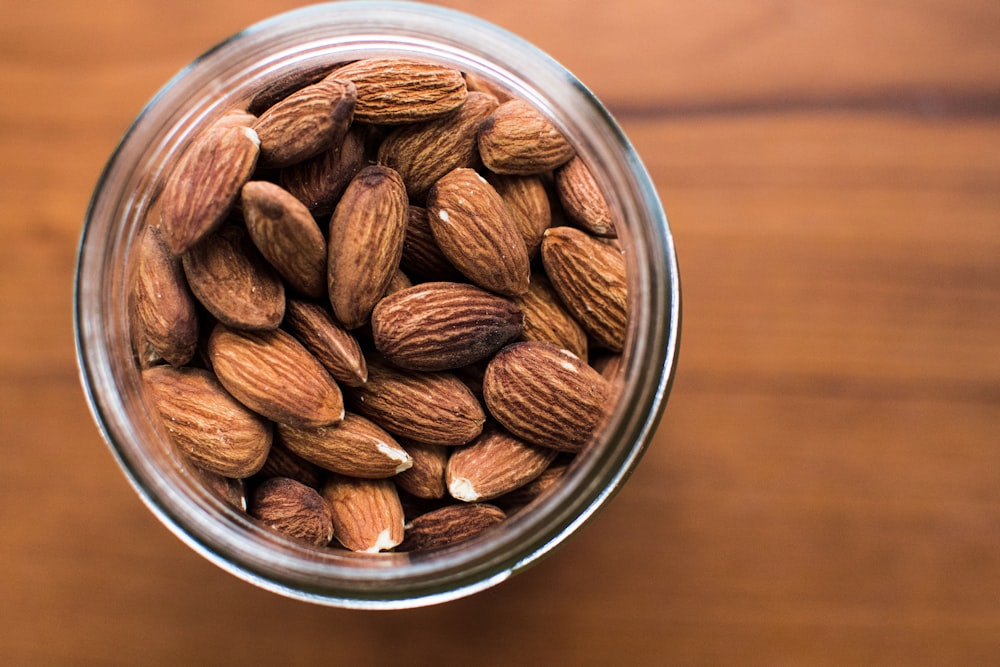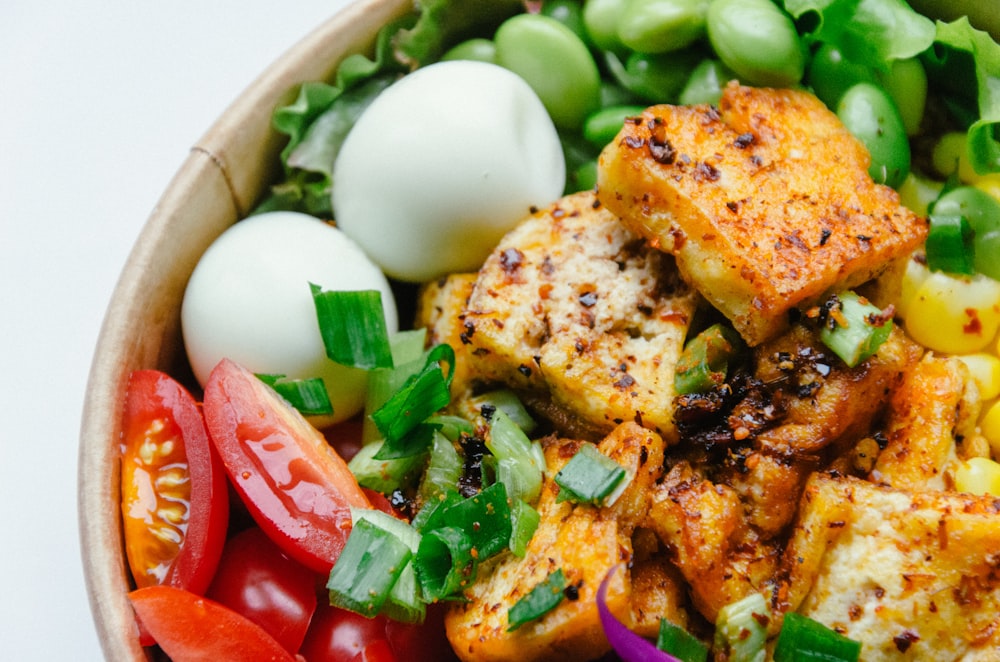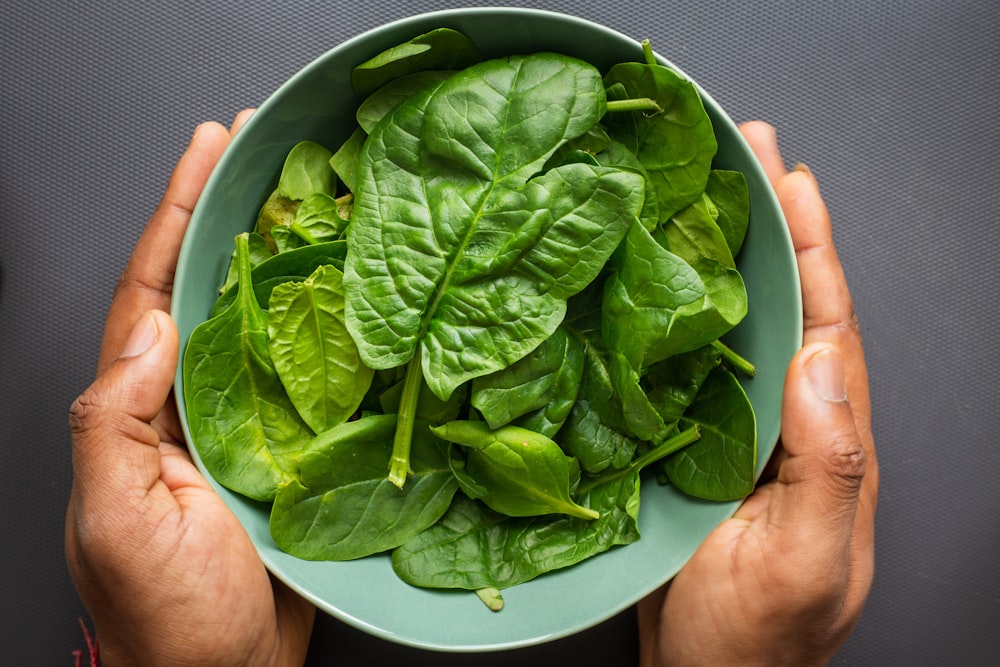Top 18 foods for your hormones (and the ones to avoid)

Are your hormones out of whack? Perhaps your diet needs a healthy overhaul. The good news is, you can balance your hormones naturally by eating the right foods. In this article, we’re going to look at the top 18 foods to keep on hand for healthy hormones. We’re also going to look at what sabotages hormonal health. But, first things first—how do you know if your hormones are out of whack?
Symptoms of hormonal imbalance
How do you know if you’re experiencing a disruption in the delicate balance of your hormones? It’s a good idea to know what those symptoms are, to look out for them as you move through the various stages of your life. Many of us never know why we’re depressed, uncomfortable in our body and mind, or susceptible to various hormonal maladies. Awareness is always the first step. Your hormones need some attention if you experience any of the following:
- PMS
- Irregular menstrual cycles
- Brutal cramps
- Headaches during the PMS window or during your cycle
- Sleep issues and insomnia
- Stress and anxiety
- Irritability and depression
- Fibroids
- PCOS
- Endometriosis
- Infertility
- Miscarriage
GMOs and your hormones
GMOs are not good for your hormones. In fact, they’re often known as hormone disruptors. This means genetically modified foods disrupt the delicate balance of your hormones. It’s always a good idea to eat foods that come directly from nature—the ones that aren’t tampered with by humans. While this may seem like common sense to many, we all need to be reminded of the dangers of foods that are being genetically modified.
Let’s have some fun getting to know the foods you should love if you want to keep your hormones healthy throughout your life. These whole foods are naturally beneficial for your health and your hormones, and I’d like you to begin incorporating them into your diet on a daily basis. Purchase organic when you can, and try not to get frustrated when you can’t. Follow the 80/20 rule. Aim to make 80% of your food organic, and leave 20% to whatever you can find. Don’t get caught up in the particulars. Just buy whole foods and leave the rest out. It’s really quite simple!
Digestive health, liver health, and blood sugar
When it comes to healthy hormones, there’s a trifecta that impacts our health. It has to do with the digestive system, the liver, and our blood sugar levels. The optimal functioning of these three aspects of our health are essential for healthy hormones. Ok, let’s get to the good stuff! Here’s a list of the hormone healthy foods to keep stocked in your kitchen:
-
Sweet potatoes
Sweet potatoes are a staple in my household. As you learned above, they’re much more nutritious than white potatoes and they don’t cause topsy turvy blood sugar. Sweet potatoes aid in liver detoxification with their vitamin B6 content. This is essential because your liver needs to detox daily, which happens to support hormonal balance. When the liver works its detox magic, it rids the body of excess hormones, and essential part of hormonal balance. Stay tuned for delicious recipes with these nutrient-dense tubers!
-
Flaxseeds
Flax Seeds are naturally anti-inflammatory in nature. They’re really good for female hormones because they have naturally occurring phytoestrogens, which attach to our estrogen receptors to rid our bodies of excessive estrogen. Flaxseeds have even been linked to decreased risk of breast cancer, as this study, published in the journal, Cancer, Causes, and Control. You can add these little nutrient-rich seeds to anything under the sun!
-
Sunflower seeds
Sunflower seeds contain an antioxidant that helps boost estrogen, as well as progesterone—vitamin E. Studies like this one, published in the journal Nutrition and Cancer, suggest that sunflower seeds may aid in breast cancer prevention. Adding them to trail mix, and sprinkling them on salads are wonderful ways to ensure you get enough of them in your hormone-friendly diet.
-
Brazil nuts
Brazil nuts are really good for our hormonal balance due to their selenium content. They’re one of the few foods out there that contain selenium, a potent antioxidant that helps protect our thyroid gland. Snack on two Brazil nuts each day to meet your selenium requirement.
-
Pumpkin seeds
Pumpkin seeds are great for their zinc content. They’re also rich in magnesium, which helps balance stress hormones. What’s more, pumpkin seeds are good sources of vitamins B5 and C. Both vitamins also work to manage stress levels. I consider pumpkin seeds a hormonal superfood, and you should, too! Add them to salads, soups, and homemade trail mix.
-
Lentils
Lentils are a great way to get plant-based protein in a hormone-healthy diet. They’re rich in nutrients that support hormonal balance. They contain zinc, which helps increase testosterone, and also reduce excess estrogen. Full of fiber, these little gems are very versatile when it comes to cooking. Stay tuned for creative lentil recipes that balance all your hormones!
-
Seaweed
I absolutely love adding various dried seaweeds into my diet. They’re super beneficial for our thyroid hormones, given the fact they actually help our bodies make thyroid hormones. It’s their iodine content that helps us do such a thing, as this study, published in the journal Annals of Pediatric Endocrinology and Metabolism. During your next trip to the grocery store, keep an eye out for seaweeds like nori, dulse, wakame, kombu, arame, and hijiki.
-
Sardines
I absolutely love sardines for their nutrient-dense impact on our health. They’re cheap, simple, and beneficial for our hormones. Sardines pack a nutritious punch with their B12 content, which our thyroids need to function properly. Like Brazil nuts, sardines also contain selenium. They have a bit of iodine, too, making them an ideal thyroid booster.
-
Avocados
Avocados are my favorite fruit. They’re one of the healthiest sources of fat on the planet, and they’re especially good for hormones because they help balance blood sugar levels. They’re also great for stress reduction due to their vitamin B5 content, also known as pantothenic acid. Does an avocado a day keep the doctor away? Perhaps. But, one thing’s for certain. They’re an essential staple in every female’s diet.
-
Almonds
Yet another nut with great hormonal benefits is the almond. This one’s great because it contains essential fat which fights inflammation, blood sugar imbalances, hormonal imbalances, and stress. Eat almonds in your trail mix, add them to salads, oatmeal, or have almond butter with bananas and apples as a healthy and simple snack.

-
Eggs
Eggs are such a simple food, and yet, they’re so good for you. Eggs help balance our hormones with their omega-3 fatty acids, their choline content. The best eggs are free range, cage free, or pasture-raised. This means chickens were raised in a humane way, free to roam, and free of the antibiotics injected into eggs raised in factory farms. One of my favorite meals is a couple hard-boiled eggs, drizzled with extra-virgin olive oil, and a dash of sea salt and pepper. And speaking of sea salt…
-
Sea salt
Sea salt is a hormonal superfood as well. It contains trace minerals our hormones crave. We all need sea salt in our diet, especially women. Sea salt helps our adrenals stay healthy, and can be added to almost any dish. I always have sea salt on the dinner table, and add it each night to my evening meal. It makes every dish taste better!
-
Kale
All leafy greens are great for hormone support. Kale is especially beneficial, given the fact that it’s so nutrient-dense. Kale has loads of vitamin C, which supports adrenal function. It’s also ripe with vitamins A, B, and K. How’s that for a nutrient load? Look out for my favorite kale-tahini salad in the recipes that follow!
-
Spinach
Spinach is another dark, leafy green that our hormones need for sustained health. Spinach feeds hormones with iron, as well as various B vitamins. Spinach is also great for the thyroid, as it nourishes the thyroid with iron. Spinach salads are some of my favourite meals, especially during the warmer months!
-
Quinoa
Quinoa is a wonderful grain for our hormones. It’s full of protein, as well as minerals and fiber. This South American grain is great for your digestion, which is intricately linked to your hormones. I love making light quinoa dishes for lunch, and even dinner, when a light meal is needed.
-
Bell peppers
Bell peppers are great for our adrenals, given the fact they’re ripe with vitamin C. Our hormones need plenty of vitamin C to maintain their balance and optimal function. What’s more, bell peppers are full of B vitamins, which help is reduce stress and support the nervous system.
-
Millet
Millet, like quinoa, is a gluten-free grain. It’s not so popular in America, but is gaining more and more popularity, as more and more people reduce (and even eliminate) gluten from their diet. This staple grain for many people the world over contains plenty of fiber, which helps balance blood sugar. It also has a wide range of B vitamins, as well as magnesium.
-
Broccoli
Broccoli’s an essential vegetable in every hormone-healthy diet. It’s part of the cruciferous family, which means it also has cancer preventive properties, especially estrogen-related cancers. Broccoli also helps with digestion and bowel movements. We actually eliminate excess estrogen through our bowel movements. And broccoli aids in this process.
Foods to cut out of your diet to have hormones that love you
Some of the worst foods for your hormones are all over the place! It’s really difficult to stay away from them. But, you must! Use the knowledge I’m about to give you and cut these foods out of your diet, pretty please! Here’s a list of them:
-
Refined sugars and artificial sweeteners
These foods are no good for your precious hormones. In fact, they’re not technically real foods, and yet you find them in so many items at the grocery store! What’s a gal to do? Stay away from them! Because they greatly impact our blood sugar levels, and not in a good way. Your hormones need blood sugar levels to be balanced, because the two are intricately linked. When blood sugar spikes, and then crashes, your hormones have to become imbalanced to work with this roller coaster ride. Before long, both your blood sugar and your hormones become chronically topsy turvy. It’s a recipe for a hormonal disaster. Even stevia, the no-sugar sweetener can mess with ovulation. It’s best to consume all sweeteners in limited quantities. Or just fulfill your sweet tooth with dark chocolate and fresh fruit.
-
Soy
Most soy products these days are highly processed. Soy milk, soy cheese, soy yogurt, and soy meats are heavily processed. Avoid these when you can, and opt for healthier soy options, which include: tamari, tempeh, and miso.

-
GMO foods
Genetically modified foods have had their DNA tampered with. They’re not natural, and this tampering impacts our own bodies. It’s best to stick to foods that come directly from Mother Earth. Choose whole foods over anything packaged. Choose fresh over frozen. Eating well is what’s going to create hormonal health over the long-term.
-
White potatoes
Eating white potatoes causes blood sugar levels to go on that roller coaster ride. First there’s a spike, then a crash. In female bodies, white potatoes act like sugar. This has a negative impact on fertility. Sweet potatoes are much, much healthier for women (and men for that matter). Swap out your white potatoes for sweet potatoes and give your hormones a healthy boost.
-
Caffeine
Women are more sensitive to caffeine than men. In moderation, caffeine’s ok for many women, including me. But, I try not to drink coffee after noon to ensure a good night of sleep. But, more importantly, there are two primary reasons women might want to limit coffee, or cut it out entirely. Firstly, they promote the growth of cysts within the breast tissue. Secondly, caffeine is believed to disrupt a woman’s ability to get pregnant. If you want to have a child, consider sipping decaf teas instead.
If you’re wondering what to cook for breakfast, lunch, dinner, or dessert, check out our hormone balancing cookbook. You’ll love the simple and delicious recipes inside!

